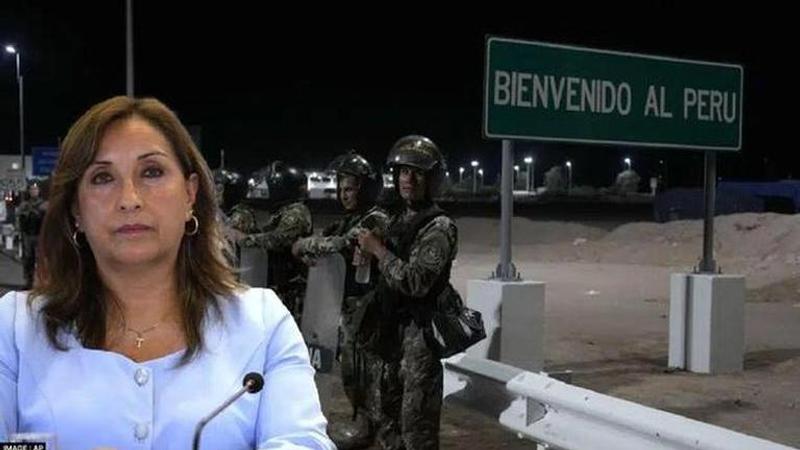Published 13:18 IST, May 1st 2023
Migrants clash with police at Peru-Chile border as Peruvian president declares emergency
A migration crisis at the border between Chile and Peru intensified last week as hundreds of people remained stranded with reported clashes at various sites.

Advertisement
The migration crisis at the border between Chile and Peru escalated last week as hundreds of stranded individuals attempted to return to their home country of Venezuela but were unable to cross into Peru due to document-related restrictions. At the border of the two South American countries, the migrants are exposed to the harsh climate of the Atacama Desert, which is one of the driest regions on earth and experiences extremely hot days and intensely cold nights. While some of the migrants have created makeshift tents with blankets, they lack access to basic necessities such as water and other essential services.
Peruvian officers prevented a group of migrants from running through the desert toward Peru. Some women among the group voiced their complaints and demanded that the government of President Gabriel Boric arrange for a bus to transport them to Venezuela, reported AP.
Chile & Peru declare emergency in the region
Officials in Arica, the northern Chilean city that borders Peru and is around 2,000 kilometers (1,245 miles) from the capital of Santiago, declared a migration emergency Thursday.
A day earlier, the Peruvian president, Dina Boluarte, declared a state of emergency in Tacna, a town near the border with Chile, in order to “preserve domestic order” and contain the arrival of migrants. In announcing the measure, the president attributed “criminal acts” to migrants.
Boluarte has expressed her intention to advocate for a constitutional reform that would permit the armed forces to intervene in the border region. In contrast, Boric has already dispatched troops to the border in late February to assist in preventing the entry of migrants.
Chile's government requested a meeting with Peruvian Ambassador Jaime Pomareda to convey its dissatisfaction with Tacna Mayor Pascual Guisa's remarks. Guisa had referred to Chile's president as "irresponsible" for attempting to shift the country's migration problems to the border. Pomareda did not make any public statements regarding the meeting.
Arica’s mayor, Gerardo Espíndola, vowed to “provide resources” to support those in need, particularly children and the elderly. “We will act as quickly as this critical situation affecting the people stranded at the border requires,” Espíndola said.
As the situation remained unresolved, Vlado Mirosevic, the leader of Chile's lower house of Congress, proposed the creation of a humanitarian corridor that involves all the countries in the region. The proposed corridor aims to alleviate the crisis and provide a safe route for the migrants to return to Venezuela.
Chile's Foreign Minister, Alberto van Klaveren, acknowledged the significant humanitarian issue in the area and cautioned that Boluarte's decision to involve the armed forces could intensify the pressure at the border.
The recent exodus of migrants from Chile occurred following a call by the National Prosecutor's Office on April 10 for prosecutors to seek preventive detention for individuals who commit a crime and cannot provide proof of their identity.
Furthermore, a proposal is currently under consideration in the lower house of Congress to criminalise irregular immigration and establish jail sentences of up to 541 days for those caught entering Chile through unofficial means.
Updated 13:18 IST, May 1st 2023




